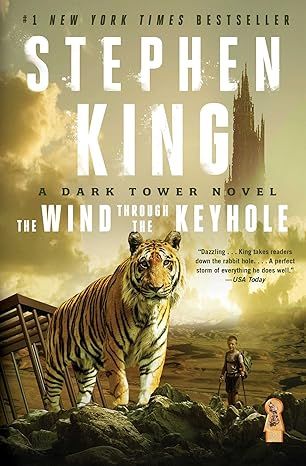The Wind Through the Keyhole: The Dark Tower IV-1/2
4.7 out of 5
9,886 global ratings
In his New York Times bestselling The Wind Through the Keyhole, Stephen King returns to the spectacular territory of the Dark Tower fantasy saga to tell a story about gunslinger Roland Deschain in his early days.
The Wind Through the Keyhole is a sparkling contribution to the series that can be placed between Dark Tower IV and Dark Tower V. This Russian doll of a novel, a story within a story within a story, visits Roland and his ka-tet as a ferocious, frigid storm halts their progress along the Path of the Beam. Roland tells a tale from his early days as a gunslinger, in the guilt-ridden year following his mother’s death. Sent by his father to investigate evidence of a murderous shape-shifter, Roland takes charge of Bill Streeter, a brave but terrified boy who is the sole surviving witness to the beast’s most recent slaughter. Roland, himself only a teenager, calms the boy by reciting a story from the Book of Eld that his mother used to read to him at bedtime, “The Wind through the Keyhole.” “A person’s never too old for stories,” he says to Bill. “Man and boy, girl and woman, we live for them.”
And stories like The Wind Through the Keyhole live for us with Stephen King’s fantastical magic that “creates the kind of fully imagined fictional landscapes a reader can inhabit for days at a stretch” (The Washington Post).
320 pages,
Kindle
Audiobook
Hardcover
Paperback
Audio CD
First published December 5, 2016
ISBN 9781501166228
About the authors
Stephen King
Stephen King is the author of more than fifty books, all of them worldwide bestsellers. His first crime thriller featuring Bill Hodges, MR MERCEDES, won the Edgar Award for best novel and was shortlisted for the CWA Gold Dagger Award. Both MR MERCEDES and END OF WATCH received the Goodreads Choice Award for the Best Mystery and Thriller of 2014 and 2016 respectively.
King co-wrote the bestselling novel Sleeping Beauties with his son Owen King, and many of King's books have been turned into celebrated films and television series including The Shawshank Redemption, Gerald's Game and It.
King was the recipient of America's prestigious 2014 National Medal of Arts and the 2003 National Book Foundation Medal for distinguished contribution to American Letters. In 2007 he also won the Grand Master Award from the Mystery Writers of America. He lives with his wife Tabitha King in Maine.
Read more
Reviews
Greg H
5
Thank You, Stephen King! One Last Dark Tower Fix...
Reviewed in the United States on September 3, 2024
Verified Purchase
...Or maybe not? Any other in between chapters lurking in that mind of yours, Sir Stephen King, would be welcome and say thankee!
If you, fellow reader, have never read any of Stephen King's stories, but only watched the Hollywood Schlock versions, then pick up The Gunslinger and go on a journey through time and across Universes.
The saga of Roland and his Ka-tet seems to borrow a little from many of the great stories of our time, not the least of which is LOTR.
I think you won't be disappointed with this book.
Read more
Bobbynew
5
Must read for The Dark Tower enthusiasts.
Reviewed in the United States on September 9, 2024
Verified Purchase
I loved this inserted story. It referenced many elements of previously used material. Many times I found myself thinking, "Oh yeah. I remember that."
James Tepper
5
Superb story within a story within a story
Reviewed in the United States on April 27, 2012
Verified Purchase
Stephen King's latest, "The Wind Through the Keyhole: a Dark Tower Novel", is a return to the people and places of the "Dark Tower" series, SK's seven volume Magnum Opus that was begun in 1978 and completed in 2004. The ending of the seventh book (which was fairly controversial- some fans hated it, while others loved it) didn't leave much room for a sequel. Now, 8 years after the "final" ending, we have not a sequel, but a sort of an "intrquel", a compact novel (at just 300 pages on my iPad, I believe it is the shortest novel since his 272 page debut, "Carrie", that SK has ever published) that revisits Roland, Jake, Eddie, Susannah and Oy during a brief interlude just in between the events in the 4th novel in the series "Wizard and Glass", and the fifth, "Wolves of the Calla", each of which runs about 750 pages (and for what it's worth, were my favorites in the entire DT opus).
To do this, King very effectively uses the old "story within a story" structure, only this time it's really a story within a story within a story. The enclosing tale finds the ka-tet rushing to find shelter from a kind of deadly Mid-World subzero tornado or hurricane called a starkblast whose imminent arrival is signaled by Oy's behavior. The group frantically gathers wood for a fire and takes refuge in the only solid stone structure that they find in a deserted town. Roland tells them that they are going to be holed up, hunkered around the fireplace for at least a few days, and Jake asks Roland to tell them a story. If you've read Wizard and Glass, you know that the bulk of that wonderful, bittersweet novel was also relayed via Roland telling the ka-tet a story about when he was a boy. So trapped by the starkblast, Roland proceeds to tell them another story about his days as a teen-aged newly minted gunslinger (that takes place shortly after the events in Wizard and Glass), when his father sends him and friend, Jamie, to investigate mysterious murders and rumors of a shape-shifting monster terrifying the town of Debaria. This tale is the story within a story. While there, Roland and Jamie meet 11 year old Bill Streeter, the sole survivor of the monster's most recent attack in which his father is killed.
Roland comes up with a plan to uncover and capture the shape-shifter, that involves locking Bill into a jail cell for protection, and promising to wait with him as his plan unfolds. During the night in the cell, Bill asks the young Roland for a story, and Roland tells him a story that his mother used to read to him when he was about Bill's age (only a few years ago). That tale is a magical story about a young boy just about Bill's age and is called "The Wind Through the Keyhole", and is the longest section of the book.
All three stories are distinct and different, but all are filled with trademark SK characters and story lines that weave in and out of each other self-referentially. It all fits with and feels so much like Wizard and Glass that it is hard to believe that The Wind Through the Keyhole was written some 15 years later. Perhaps best of all, as King states in the very short forward, one need not have read Wizard and Glass or any of the other DT novels to be able to follow and fully appreciate this one (given a few facts that SK lays out in the Foreward). For those who have read the rest of the DT novels, we learn a bit more about the young Roland, his relationship with his mother, the "current" Roland, and billy bumblers. We also meet new and old characters from the DT universe, all the while being entertained with the centerpiece story that is a beautiful sort of Stephen KIng fairy tale, in a similar vein to his "Eyes of the Dragon".
Very Highly Recommended for DT fans and others who just like a good story.
JM Tepper
Read more
6 people found this helpful
Rad 192Amazon CustomerSteve
5
In line with Dark Tower series.
Reviewed in the United States on July 21, 2024
Verified Purchase
Really good book. Stays in line with the series. I thought it was a very good story and very well told. I read the whole Dark Tower story years ago. One of the best stories I’ve ever read, all 7 books. This book and story is just as good. I liked it a lot and recommend it to Stephen King fans.

T-Rex 5
5
Excellent Addition to the Dark Tower Series
Reviewed in the United States on May 25, 2015
Verified Purchase
This is overall an excellent book. The book is 8th in the Dark Tower series, but more appropriately can be considered book 4.5. The novel features a story, in a story, an interesting & unusual way to do a novel. The novel starts off with the band of 5 from book 4, on their trip to find the Dark Tower. A deadly storm (a "starkblast") comes up, and they are trapped in a shelter for 3 days. During this time, Roland tells them a story from his youth, to entertain them. The story concerns one of his first assignments as a gunslinger, sent by train to a distant land to find the source of reports of a murderous shapeshifter (reports which his father doesn't believe are true.) The reports are true, and his first night there, another multiple homicide occurs. A young boy is the only surviving witness, but even through Roland's hypnotism, he recalls little. Roland locks the boy and himself in the town jail as protection, fearing that the shapeshifter may target the boy, since he's a witness. To entertain and comfort the boy, Roland tells him a story that his mother often told him, about a brave boy who survives a "starkblast". So the first 3rd of the book concerns Roland's history, the second 3rd, the story he tells the boy, then the third 3rd, wraps up the story from history. Both stories are very well-written and entertaining. The story is suspenseful, but perhaps not quite as suspenseful as some of King's others stories (after all, we all know that Roland will survive the shapeshifter.) As a bonus, we learn a bit more about Roland's mother, and a last letter she wrote to Roland. The story Roland tells the boy involves a character who is an evil tax-collector from the land of Gilead, I highly doubt that Roland's mother, raising Roland in Gilead the supposed bastion of good on the earth, would have ever told a tale featuring such a character. That was the one part that seemed out of place in the novel, since the story could have been told without reference to an evil representative from Gilead. The rest of the story Roland the boy told was quite developed, especially in its discussion of marvels from the "old people." Concerning Roland's story of his youth, I have a feeling that its not quite 100% consistent with the rest of the books (like the Manni people in book 5, weren't they new to Susannah/Jake/Eddie, yet they should have known them from this story. Still, any inconsistencies are small, and quite forgivable considering this excellent novel.
Read more
4 people found this helpful
J
5
A Memory Wrapped in a Fairy Tale
Reviewed in the United States on March 1, 2013
Verified Purchase
As an avid reader of Stephan King I've come to expect a few things from him. He has a hard time closing out his larger works, he writes bad alien stories, and he's always best when he's short and sweet. Don't agree? The hand of God at the end of "The Stand" was a horrid use of deus ex machina in an otherwise solid novel and in IT there's a pre-teen gang bang (I will give him a pass on the end of Insomnia.) The Tommyknockers and Dreamcatcher are the weakest novel in King's prolific collection. And as far as short and sweet Cujo, Misery, Carrie, The Shining, his novellas, The Green mile, and The Dark Tower. Yes, while the Dark Tower was a seven (now eight) book series it was told in serialized sections, and each section had it's own conclusion even as it led into the next installment. And what's more is that The Tower had it's tentacles neatly wrapped in most of King's prodigious library. There were short sections inside of longer books that proved to be the icing on the cake for Tower fans.
A short section in a longer book is how I'll qualify the latest installment of the Dark Tower. Neatly placed between books three and four, "The Wind Through the Keyhole" does three neat tricks that prove King may very well be our modern Dickens. First, it's bridges the preceding and following book in a slick almost effortless fashion. Giving us Tower-heads just enough new information on the travels of our Gunslinger and his Ka-tet to satisfy us without the need for any ret-con, or conflict regarding the overall story arc. Second, it gives us more insight into Roland's youth. How he dealt with the matricide he'd committed, how he performed as a young gunslinger with the sandalwood irons, and gave us a tale of Jamie de Curry who was mentioned in the original book and then seemingly forgotten, and third he tells us a sweet fairy tale of a brave young boy. It's almost Inception like in it's Story inside a memory inside a fairy tale. A literary Turducken if you will.
The middle layer of tale itself is beautiful. The Skin man part of the story is a beautiful glimpse inside the world as it's breathing it's last breath before the fall of Gilead and civilization itself. The development of Jamie de Curry brings this forgotten friend to life. The search for the Skin Man is a nice mystery. And we get to watch as Roland grows into the reluctant compassion that marked and scarred him later in life. Roland's icy heart closed off from the death of his mother thaws a bit for a boy caught homeless, scared, and alone in the world.
The final layer, "The Wind Through the Keyhole" itself is King at his masterful best. A true fairy tale for a younger audience much like "The Eyes of the Dragon" was. It's the story of a boy forced into adulthood by circumstance. It has all the elements of a great fairy tale. A wicked step parent. An evil witch, or warlock in this case. A doomed princess. A trusty sidekick. An impossible task, against insurmountable odds. An unknown group of helpful savages. Strange scenery. A trapped wizard. As a tale, this story could stand alone outside of the context of the greater book. This fully developed tale is a gem.
My overall thoughts on the book when I learned it was coming out weren't good. I figured a nice cash grab at best, and a horrible out of place chapter of a tale no on asked for. I expected this to be the Jar Jar Binks of the Tower. I was surprised by the craftiness, beauty, and arc of this novel. I'm glad that King has revisited the ol' Tower stompin grounds, and now I'm hoping he does it at least one more time... Perhaps the bridge between when Susannah was drawn, and we opened in a forest in The Wastelands?
Read more
2 people found this helpful
Nate L
5
King's Love Letter To Story
Reviewed in the United States on September 5, 2012
Verified Purchase
When I first heard that King was doing another Dark Tower book, I was worried. Looking at Wizard and Glass and Wolves of the Calla, I didn't see any space there for a story. King very clearly loves the world of the Dark Tower as it usually sneaks in in some way into almost all of his work, but the announcement of this book made me wonder if the man was going back to the well one too many times. I'm thrilled to report that all of my concerns were unfounded and The Wind Through The Keyhole is my favorite Dark Tower book and possibly my favorite King book.
The interesting structure of this book which has been noted in most of the reviews instantly reminded me of the movie INCEPTION. The Wind Through The Keyhole is a story that you, the reader, are being told. In this story, Roland tells a story about his youth before the world had moved on. Inside THAT story, Young Roland tells the titular story that appears to be a common folk tale amongst the folks in Mid-World. In the folk tale, the main character Tim references other stories but never actually tells one. So, in INCEPTION terms, we're three levels deep with a fourth being hinted at.
One could argue that nothing of importance happens, nor did we learn anything revelatory about any of the characters. One could also argue that King could have ditched the stories inside of stories framing device and just given us The Wind Through The Keyhole without the fluff. All of these things are true, but they also miss the whole point of the book which is that stories matter more than maybe anything. All throughout this book we see how stories help various characters. What they learned from stories, how they grew from hearing stories, how they took courage from stories, how they use false stories as a weapon, and so on. At one point this theme is plainly stated, "We're never too old for stories. We live for them." It's a beautiful message and one that hit me pretty hard.
It should also be noted that the titular story is fantastic. It has the feel of a classic fairy tale, but at the same time definitely takes places within the world of the Dark Tower. This story takes up more than half the book and is an exercise in economical and gripping storytelling. I would not have wanted it for this book, but if King wanted to give us a standalone book or seven based solely on the continuing adventures of Tim Stoutheart, I would be all in favor.
So in what order should you read this book? As a general rule with prequels and interquels, I always go through stories as they're chronologically released and I think that applies here too, although nothing would be ruined if you did read this after Wizard and Glass. Most of this book isn't even about our beloved ka-tet and after a whole book of back story, it would be understandable if you grew impatient and missed the beautiful point of this book. Come back to this one after you're not in a rush to see what's inside the Tower.
King could have written a love letter to stories in a million ways and not have had it reliant on the mythology and world of the Dark Tower series. But he did, and I'm grateful he did. Mid-World has never felt more alive and real to me than it did while reading The Wind Through The Keyhole. Highly recommended.
Read more
Grant Cousineau
4
The Wind Through the Keyhole is Old Fashion Campfire Storytelling--Stephen King Style
Reviewed in the United States on July 23, 2012
Verified Purchase
Let's open this thing up with some honesty, shall we? Stephen King can write whatever the hell he wants, and spin it into gold like some sort of tall, decrepit, bespectacled Rumplestiltskin.
If he wanted to write a story using only eleven letters of the alphabet and omitting every other page, and for some unfathomable reason he set it in Machu Picchu in 1693, it would still sell a blagillion copies. At times, it felt as if King knew this as he wrote The Wind Through the Keyhole (TWTTK). Presumptively, the "King of Horror" bows to no editor. And you know what? If I had his talent, his résumé, and had almost died at the hands of an idiot in a van once upon a tragic time, I wouldn't either.
But there is control within the chaos.
This new volume doesn't expand upon the original story in terms of plot, but in this little pit stop King examines the rules of fiction writing, and he bends them to his will. TWTTK is actually three separate stories, tucked within one another like little Russian nesting dolls. This means that, yes, there are three interrelated levels of storytelling going on here--four actually, if you acknowledge the fact that King is the divine mastermind behind the desk. Not to mention, the whole thing rests within the heart of King's greatest tale, his magnum opus, The Dark Tower series.
And because of his caramel-smooth prose and knack for laying blood-drawing barbs, the story-within-a-story-within-a-story approach is all but seamless. While the result is not the most epic of tales, what you have is three hundred pages of fireside fantasies and a nice little bridge between the colossal love story which comprises Volume IV: Wizard and Glass, and the battle looming in Volume V: Wolves of the Calla.
The Dark Tower began as a teenager's curios idea long ago. King wandered through the first four books between 1982 and 1997. But then, after the near-fatal van accident of 1999, suddenly the notion that his greatest work might go unfinished didn't seem so...surreal. Add to the pressure his two assistants, Marsha and Julie, who got sick of fielding fan mail about when the darn thing would finally be completed. Thusly, King released the last three volumes in classic, brick-sized form between 2003 and 2004.
Even though the impetus for TWTTK was the result of a survey to see if fans were hankering for another Dark Tower book or a sequel to The Shining (don't worry, Dr. Sleep is on its way, too!), you get the sense that this volume was still done under his own terms, something he held a little closer to his heart. TWTTK carries the optimistic tone that he adopted after the van accident--as faint as it may be at times, and as juxtaposed as it is against those blood-drawing barbs, you can sort of feel it there like the shift in the wind. But because the stakes aren't as high this time around, that tone suits the book nicely.
This episode begins along the jaunt directly after the ka-tet of Eddie, Susannah, Jake, Roland, and Oy have left Emerald City. They are back following the Path of the Beam toward The Dark Tower, and as an elderly man takes them across a river, he warns them to seek shelter soon. A starkblast is on its way.
"Starkblasts" are the just the newest ingredient to King's Dark Tower world. It's described as a cold storm that comes over a region quickly and lethally, and can last several days:
"One moment your warm as toast--because the weather always warms up before--and then it falls on you, like wolves on a rattle of lambs. The only warning is the sound the trees make as the cold of the starkblast rolls over them. A kind of thudding sound, like grenades covered with dirt. ...Ponds freeze in an instant, with a sound like bullets breaking windowpanes. Birds turn to ice-statues in the sky and fall like rocks. Grass turns to glass."
So the ka-tet finds shelter and builds a massive fire. This presents Roland, the Mid-World native and central protagonist, a chance to practice the revered tradition of his home world: storytelling.
He begins with the story The Skin-Man, the "true" tale of a murderous shape-shifter. As a teenager, Roland was sent to Debaria with fellow gunslinger Jamie DeCurry. (If you're completely unfamiliar with The Dark Tower, gunslingers are sort of like Jedis: Vigilante peacekeepers, but in more of a "shoot `em up" Western kind of way). They come across the gory remains of a brutal slaughter, where the only survivor and witness is a boy by the name of Billy Streeter. Roland escorts Billy to a jail cell as bait for the Skin-Man, where Roland tells him the legendary tale from his own world: The Wind Through the Keyhole.
This third tier is where the real meat is. Tim Ross's father was out chopping trees one day when his dad's best friend and business partner Bern Kells returns and tells them that Tim's father died at the mercy of a dragon. Bern (drunkenly and abusively) slides in as Tim's stepfather, up until the Covenant Man comes along collecting taxes. (Come on! You know within two lines of dialogue that this guy is more evil than the tax collectors we got here in the good old U. S. of A.) Anyway, he tells Tim to meet him in the woods later...alone. This sets off Tim's quest to learn the truth behind his father's life and death, to cross the magical history of Mid-World, and hopefully find a cure for his mother's blindness, caused by none other than Kells himself.
This novel is a nice little exercise in storytelling, in each purpose, interpretation, and execution. While this falls middle of the pack among the other volumes of The Dark Tower series, and probably in the upper third of all King's works, you'll walk away feeling more rewarded if you make sure to tiptoe in with below-magnum-opus expectations. If you're looking to visit a few friends you haven't seen in a few years, in a place you haven't been back to in a while, then I'd say boil up a mug of hot cocoa, grab the closest flannel blanket, and sit down beside the crackle of the fire for another good yarn, laced, of course, with a few anticipated barbs.
Read more
3 people found this helpful
Stefano Buffoli
4
Trying to be objective here
Reviewed in the United States on May 2, 2012
Verified Purchase
More or less all Constant Readers know the facts: Stephen King starts the Dark Tower series, writes four books that are generally regarded as excellent, wild, visionary Lord-of-the-Rings-meets-The-Good-the-Bad-and-the-Ugly stuff, then stops for a while, because he's not sure where to go with the story - until he has a road accident. This event changes his personal priorities, and he resolves to finish the saga writing the final three books, which unfortunately are now generally regarded as vastly inferior to the first four.
Now, I did appreciate the ending of the Dark Tower anyway. I am aware lots of people will not agree on this, but then again a lot will, it's one of those love it or hate it things. While I was reading it, while I was seeing it unfold in front of my eyes, I thought that yes, that was the only possible ending; I slapped myself on the forehead and thought "Of course!". It's not only what happens, actually, it's the how, the execution that makes it good: there is a proper crescendo, it's mystical as it should be, it really feels like the end of the journey and you are there with Roland. And in a seven book saga where the final destination, that mysterious Dark Tower, is always looming on the horizon, where every event is propelled by this obsession of the main character for the Tower, this is what makes the difference: how it all ends, the sight waiting for you at top of the mountain. A bad ending will disappoint you enough to look back at the whole series and hate it, and you will leave the place full of spite and resentment. A good ending will make you forgive the flaws and you will leave happy (and sad, because the story doesn't continue further).
But even if I liked the ending, I did agree with the general view on the second batch of books. I was particularly disappointed by Wolves of the Calla, which, I thought, was horrible (while my personal favorite in the series is The Waste Land. If you can come up with characters like a giant cyborg bear with an antenna on its head and a sentient psychopath train that loves riddles and TALKS IN CAPS, you are a brave writer; but if you manage to make those character actually believable, alive and scary, you must also be very good at what you are doing).
At some point I became fairly sure that King in recent years had lost his touch. He did obviously develop his taste for meta-elements in stories - something he always had, really, look at Desperation and its twin book, at RF/MB as the recurring bad guy that pops up in various worlds: stories that resonate, events and characters that come back, the music of chance, as Paul Auster would say. All nice and interesting, but his books as a whole seemed bland lately, and kind of, well, uninteresting and meh. Maybe the accident somewhat scared him, or scared his talent away, I thought. Maybe he did need the alcohol and the drugs to write good books, I guess it's true for many writers. Well, I would have to live with it, the world has moved on, I would never read again books like The Waste Land, It or The Stand.
And then by chance I read Herman Wouk Is Still Alive, a recent short story from King, which I found powerful, moving, rather un-King-ish in its tone and in its subtleness, but very King-ish in its view of the world, of good and evil. So I went on and read 11/22/63, which turned out to be an AWESOME novel. I won't say it's the single best one he wrote, but I would definitely put it on par with his best work. It's insanely gripping, finally (finally!) I felt again that compulsion to keep reading until four in the morning, just to know what happens next. There is the right amount of surprises along the way (what does this No Suspenders guy want?) and some of the scenes were just so incredibly convincing, effective and scary (the guy with the hammer...). Just like that, the Good King was back, different from before but in many ways better than before. What happened? I wondered. Maybe he just sat it out and now he's fine again, maybe he just needed some time, maybe some other event triggered it. I'll never know. With some expectation and trepidation, I then turned to The Wind through the Keyhole. King back to the world of the Dark Tower really seemed like those news that look good at first but actually are bad. As if Led Zeppelin were back and writing new songs, but then the new songs suck and you end up hating Led Zeppelin because they just didn't leave alone the good memory you had of them. And King already did this, partially, with the final three books of the Dark Tower (although to be honest in his case it's different, he didn't have a choice, he had to finish the saga somewhat). Then again, the rest of the stuff he wrote recently is marvelous, I thought. Is it possible that he managed to pull it off? And, maybe there is something in there about the final destiny of Rhea of the Cöos... So I read it. Like it has been said repeatedly, it's a sort of a fairy tale and a story within a story. It is much smaller in scale compared to the rest of the Dark Tower books, not in terms of size, but more in terms of style, and the kind of events it depicts. More than another volume of the saga it's kind of an interlude. What does it do well? For a start, it's an absolutely enjoyable fairy tale. Often King is working with material that in other hands would feel stale, as in not original, been there done that. But in this case, again, it's the execution that counts, that ability he has to describe a cyborg bear so vividly that it comes alive in your head. As for this one book, how many dragons have been breathing fire in fantasy and horror stories? Still, King's dragon seems very real, it behaves like a real animal would, it is first and foremost a very believable huge beast. And the tiger is another good example:
In the cage, pacing slowly around a hole in the center, was an enormous tyger. It saw the staring, gapemouthed boy and approached the bars. Its eyes were as large as Points balls, but a brilliant green instead of blue. On its hide, stripes of dark orange alternated with those of richest midnight black. Its ears were cocked. Its snout wrinkled back from long white teeth. It growled. The sound was low, like a silk garment being ripped slowly up a seam. It could have been a greeting . . .
Don't you just perfectly see a tiger in your head, a fairy tale tiger, after this brief description?
Another good thing is the absence of what someone has called 'overwriting'. It's the single most annoying element of King's style in his recent books: a tendency to always make everything very explicit, something like putting the word (sarcasm) between brackets after any sarcastic question that any character happen to ask, in case someone doesn't get it. This is a problem that 11/22/63 has, actually (but not Herman Wouk). A small example. Let's say that King wants to show how ignorant and illiterate a political extremist group of the Sixties can be; he does that with the content of a flyer that has many spelling mistakes, distributed by one of these groups:
During the Thursday night telemcast of the Billy James Hargis so-called "Cristian Crusade," Channel 9 will give are-time to GENERAL EDWIN WALKER, a right-wing fascist who has encouraged JFK to invade the peaceful peoples of Cuba and who has formented anti-black, anti-integration "HATE-SPEAK" all over the south. (If you have doubts about the accuracy of this information, check the "TV Guide.") These two men stand for everythig we fouht against in WWII, and their Fascist RAVINGS have no place on the are-waves.
Now, this would be enough, the spelling mistakes are clearly visible, I understood what King wants to tell me; but no, his main character will comment:
I briefly pondered the misspellings, then folded the flyer and put it in the box where I kept my manuscripts.
Why this comment? Just in case I didn't notice the misspellings myself, I guess. It may seem like a small thing, but on the long run it's annoying. It's a bit like constantly being suggested that you are stupid and you need help. And there is more to it, there are the repetitions. How many times can you say 'The past resonates' before the average reader starts thinking 'I know it does, stop repeating it!' Clarity is always good, there is nothing worse than an unintentionally confusing story, but there are limits; if you pass them and really start explaining everything (everything!) as if the readers were completely unable to catch anything that is even slightly subtle... well, the book obviously loses strength.
I am glad to report there is nothing like this in The Wind through the Keyhole, and I really hope King will just get rid of this style feature for the future, it was the only real flaw I could find in 11/22/63, in every other respect, like I said, an AWESOME book.
Another good thing is that The Wind through the Keyhole tells us interesting stuff about Roland and sides of his personality that were not previously explored. Because the story is really about Roland, there is no space for Eddie or the other usual sidekicks; and it's also about what it means to be a gunslinger.
Anything bad to report? Not really, not exactly. As I said this is more of an interlude rather than an untold chapter of the quest for the Tower; so I wouldn't say it's a terribly dramatic or powerful book, and it's not very likely to become your favorite Dark Tower so far; but then again, I don't think it is meant to do that. Actually, I appreciate the way King has chosen to go back to that world, sort of on tiptoe, and being careful not to destroy anything valuable, just modestly adding a few things that were left out.
So my conclusion, for what it's worth, is that yes, this book is good, and I would keep an eye on whatever King will publish in the next months and years. There. I am a Constant Reader again.
Read more
21 people found this helpful
C. Dennis Moore
3
The Wind Through the Keyhole, by Stephen King
Reviewed in the United States on August 2, 2012
Verified Purchase
(Spoiler alert, this review contains many plot elements)
Just when you thought the Dark Tower series was done, Stephen King returns with another book in the series. And as if the 4th book, which is really a flashback to events long before the 1st book weren't enough of a mental knot, this 8th book in the series, fits snugly between books 4 and 5, making it book 4.5.
Got that?
Okay, so this 4 1/2th Dark Tower book picks up where book 4 leaves off, which the ka-tet of Roland, Susannah, Eddie, Jake and Oy leaving the Green Palace where Roland had related to them the story of his time in Mejis when he first became a gunslinger. They cross a river, meet a kindly old ferry master, and are told that, once on the other side, they should find shelter, because there's a starkblast coming. A starkblast is a storm, and a mean one, with power enough to snap heavy trees and freeze a person in their tracks. Roland and company find an abandoned settlement, board themselves in for the night, and settle in to ride out the storm. To pass the time, Roland tells them another story.
In his days in Gilead, immediately following the death of Roland's mother, at Roland's hand, the young gunslinger was sent by his father to the town of Debaria where rumor has it there's a beast stalking the streets at night. The beast is said to be a skin-man, a man who can change himself into various animals and wreak havoc. Roland is sent with his friend Jamie to find out who it is and put a stop to it.
Once there, they discover a small boy, Bill Streeter, has survived the skin-man latest rampage by hiding in a stable. He didn't see the man's face when he changed back into a man, but he did see a tattoo around the man's ankle. Roland and Jamie figure out the culprit must be one of the salt miners from the area, and they have the sheriff round them all up and get word out that Bill Streeter knows who the skin-man is. He doesn't, but it's a fine enough trap if Roland stays on his toes.
To set the boy's mind at ease and help him pass the time, Roland tells Bill Streeter a story his mother used to read to him as a boy, called THE WIND THROUGH THE KEYHOLE about a young village boy named Tim Ross who became Tim Stoutheart. So basically, the King novel THE WIND THROUGH THE KEYHOLE is a story about a story about a story.
Got that?
In this inner-inner-story, Tim lives in the village of Tree where lumber is the business. His father, Big Ross is reportedly killed by a dragon and with no way to pay the tax man when he comes collecting, Tim's mother marries Big Ross's partner, Bern Kells. Kells is a recovering drunk who stops recovering and goes back to being drunk, which also makes him knock Tim's mother around from time to time. When the tax man comes, he gives Tim a magic key that will open anything once, but after its magic is spent, it will be simply a useless key that goes to nothing. Tim uses the key to open Kells's trunk, which he guards very well, except when he goes to the tavern to drink. Inside it, Tim finds his father's lucky coin, which shouldn't be there because rumor says that when a dragon burns you up, it takes everything. If Kells's story is true about how Big Ross met his end, the lucky coin should have been ash as well, because Big Ross never took it off.
And that means Bern Kells probably killed Tim's dad. Before he can confront the man, Kells beats Tim's mother, suspecting she was the one who got into his trunk, then hightails it out of town. The blow to the head left his mother blind, but a vision Tim sees in the tax man's magic basin tells him if he goes into the Endless Forest and finds Mearlyn the Magician, he'll be given something to help heal her. So Tim sets off on a journey that tests his will, helps him find his inner strength and return a much better person than when he left, blah blah blah.
The story of Tim Stoutheart is meant to give confidence to young Bill Streeter so that when the sheriff parades the miners in front of him, Bill won't cower. The tattoo was the only thing Bill saw on the skin-man, but nearly a dozen of the miners have them; they were a gift from prison. In the end, the climax is less than spectacular, and since Roland is telling the story, obviously he wins in the end. Yes, there's always a price, especially where Roland is concerned, but we have no real fear for the hero.
THE WIND THROUGH THE KEYHOLE was a chore to get through, I hate to say. But it seems the more Dark Tower fiction I read, the harder it is for me, with all the "do ya kennit"s and "I say thankee"s. I just can't take much more of it, which really sucks because the Dark Tower comics Marvel publishes are full of them too and I'm not going to stop reading them.
But that wasn't my main gripe with this book. That would be THE WIND THROUGH THE KEYHOLE itself, the story Roland tells Bill Streeter. According to Roland, this is a story his mother used to read to him every night as a child, a story he's heard so many times he can tell it in great detail years later. If that were case, then Roland really is dumb as a post. Here's my evidence.
The man in black whom Roland is chasing across the desert when we first meet him is Marten Broadclock, ex-court advisor or whatever he was in Gilead before it fell. The man is also known as Randall Flagg and many many other names, famous among longtime fans of King's work. And eventually, if I remember the rest of the series correctly, even Roland learns some of these other aliases, if he didn't already--which he might have by this point. Yet there's a figure in the Wind Through the Keyhole children's story, the Covenant Man, the tax man who sets Tim in motion, a man full of bad magic and worse intentions, who leaves for him a note, signing it MB/RF.
Doesn't take a friggin genius to figure that out. But Roland never once puts these pieces together, even when he's telling the story? In reality, Roland should have figured this out and, in the middle of his tale, stopped and sorted out his revelation. But he continues the tale is if nothing happened, as if it wasn't just insinuated that the man who seduced his mother and led to the downfall of his home and everything he knew isn't also the evil trickster of this story he's supposedly heard countless times.
To me, this was just too glaring a plothole to overlook and I have to call bullsht on it. I mean, I wasn't in love with THE WIND THROUGH THE KEYHOLE to begin with, but that detail just ruined it for me completely.
I could see how King was trying to give a little wink and a nudge to the reader, but to keep the story grounded in reality, Roland really should have noticed that detail himself and untied that knot. The fact he didn't took me way too far out of the story and I just never could find my way back into it.
That being said, the entire thing seemed, to me, to fall flat. As with WIZARD AND GLASS, the Dark Tower novel chronologically just before this one, no real progress is made for Roland and his friends. They travel a couple of miles, and then we're treated to another long flashback, just as in that book. So anyone reading these novels in their new order is going to read TWO books in a row which a both nothing more than flashbacks. And that's not fair to the readers.
I think THE WIND THROUGH THE KEYHOLE, the story within the story within the story, would have worked much better on its own, without the double-framing devices. Without the knowledge that Roland is narrating this story, the revelations about the Covenant Man would have played much better, come across as more sinister, and the overall tale of Tim Stoutheart wouldn't have, in the end, seemed so pointless.
As it is, with the triple-story structure, this one comes across as average at best.
Read more
Top Stephen King titles
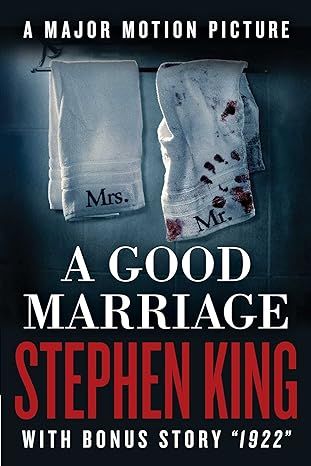
A Good Marriage
4.1
-
5,995
$4.99
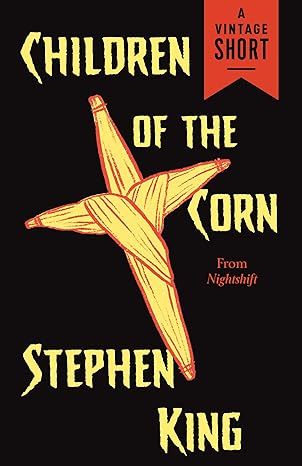
Children of the Corn (Kindle Single) (A Vintage Short)
4.3
-
1,084
$0.99
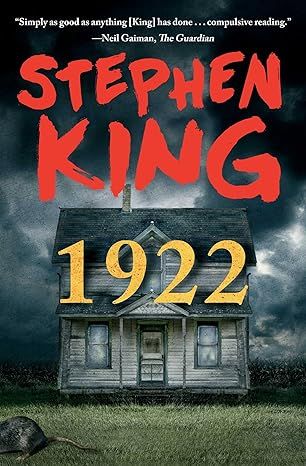
1922
4.6
-
6,082
$7.99
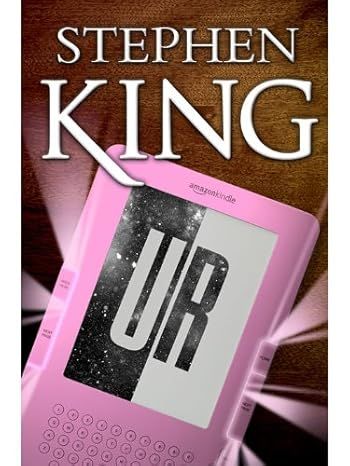
UR
4.3
-
6,140
$3.99
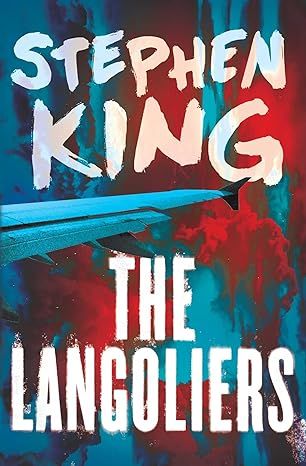
The Langoliers
4.6
-
1,014
$6.49
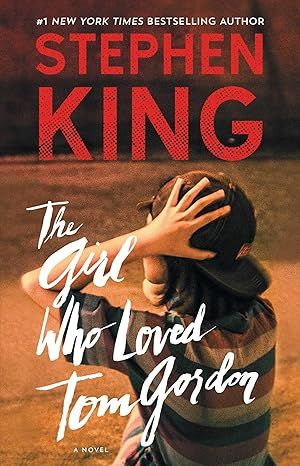
The Girl Who Loved Tom Gordon: A Novel
4.5
-
4,774
$1.17
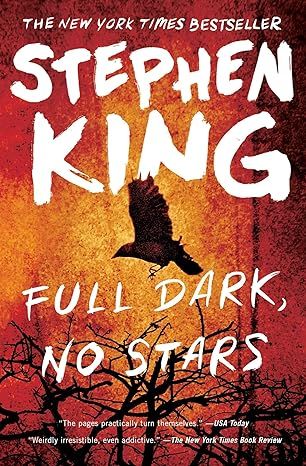
Full Dark, No Stars
4.6
-
6,762
$5.00
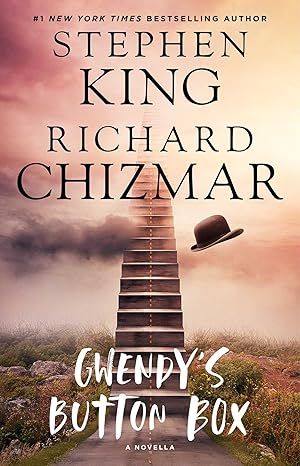
Gwendy's Button Box: A Novella (Gwendy's Button Box Trilogy Book 1)
4.5
-
21,335
$3.88
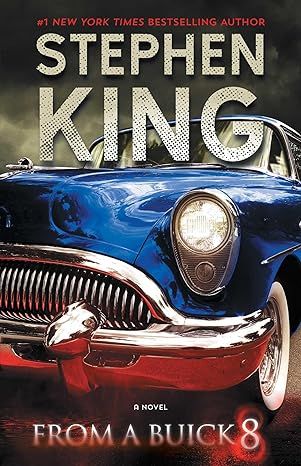
From a Buick 8: A Novel
4.3
-
2,174
$11.99
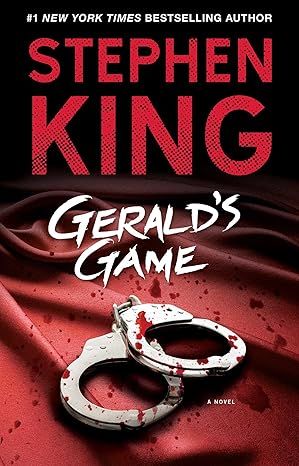
Gerald's Game
4.2
-
3,838
$1.97
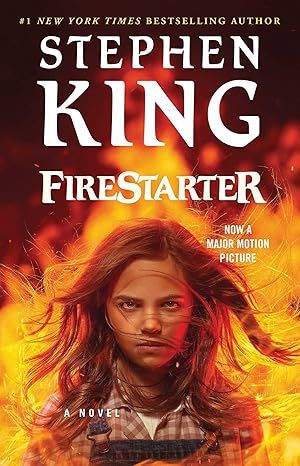
Firestarter
4.6
-
5,489
$9.99
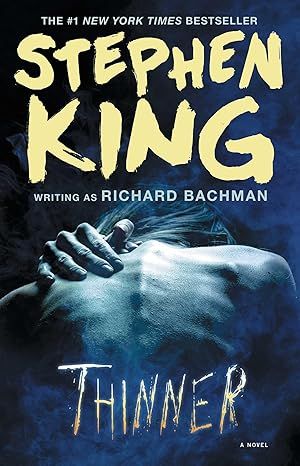
Thinner
4.5
-
3,107
$2.50
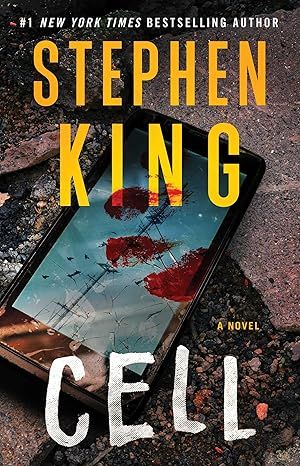
Cell: A Novel
4.3
-
5,196
$3.31
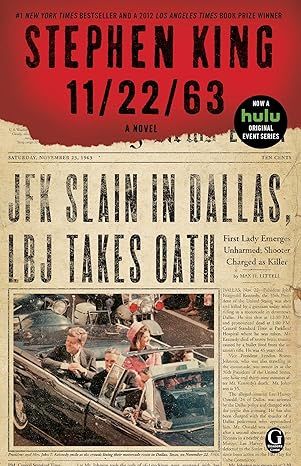
11/22/63: A Novel
4.6
-
11,307
$11.99
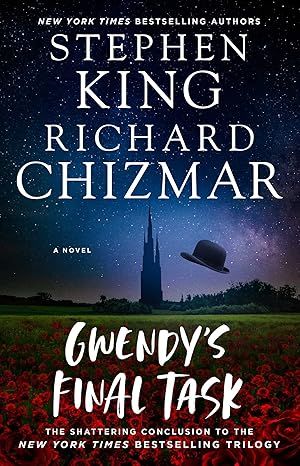
Gwendy's Final Task (3) (Gwendy's Button Box Trilogy)
4.6
-
8,788
$7.87
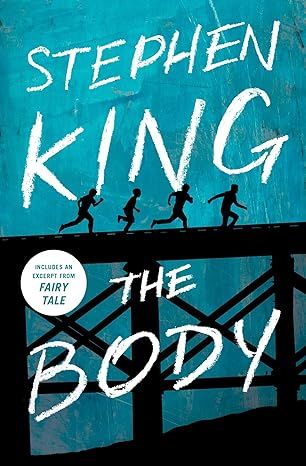
The Body
4.7
-
4,496
$10.48
Best Sellers

The Tuscan Child
4.2
-
100,022
$8.39

The Thursday Murder Club: A Novel (A Thursday Murder Club Mystery)
4.3
-
155,575
$6.33

Sapiens: A Brief History of Humankind
4.6
-
140,302
$13.49

The Butterfly Garden (The Collector, 1)
4.3
-
88,556
$9.59

Things We Hide from the Light (Knockemout Series, 2)
4.4
-
94,890
$11.66

The Last Thing He Told Me: A Novel
4.3
-
154,085
$2.99

The Perfect Marriage: A Completely Gripping Psychological Suspense
4.3
-
143,196
$9.47

The Coworker
4.1
-
80,003
$13.48

First Lie Wins: A Novel (Random House Large Print)
4.3
-
54,062
$14.99

Mile High (Windy City Series Book 1)
4.4
-
59,745
$16.19

Layla
4.2
-
107,613
$8.99

The Locked Door
4.4
-
94,673
$8.53
